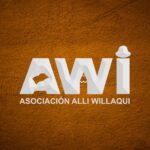About Patty
My family is full of teachers and as a girl I came to love books and learning. I also love learning languages. My first language is Spanish, but I also speak English, Portuguese and a bit of Quechua. In 2015 I started visiting the Andes Mountains with my church. The tenacity of the Quechua in the face of limited resources impressed me. Yet as I saw the reality of the Quechua children, I was impacted by the shortcomings in their school system, their lack of life opportunities, and the barriers they faced in knowing their Creator.
I studied educational psychology at Champagnat University. When the director of a Quechua ministry invited me to do my internship with them, I accepted! God opened all the doors. During my 2019 internship, I was usually pulling out of town in a shared taxi around 5AM to go out to the Quechua villages. I spent half my time working on my internship, helping Quechua children with learning disabilities. This highlighted for me the importance of mother-tongue education. I spent the other half of my village time doing ministry with Quechua children and teens, teaching them about Jesus with the Quechua Scriptures.
It was during this year that I met Alex. I asked him to help me with a part of my thesis. Then he asked if I wanted to hang out. We became friends, fell in love, and got married in 2021. You can read our love story here. It is also a testimony to God’s faithfulness in the midst of trials.
I am presently studying linguistics through SIL Curso Fundamental and CanIL to become a Literacy and Education Specialist with SIL, Wycliffe’s partner organization. This will allow me to use my gifting in childhood education to further heart transformation through the use of the translated Scriptures.
More about me:
I was born and raised in Lima, Peru.
I’m an only child, but grew up with a big part of my extended family living next door.
My hobbies include cooking, hiking, biking, drawing, reading and sewing.
More about my thesis:
I adapted a checklist used by teachers to assess self regulation in preschool children aged 3-5. Self regulation in a school setting has to do with how well children can set and work towards their educational goals despite their feelings and environmental factors. You can read the English abstract and full Spanish text here.
Partners







